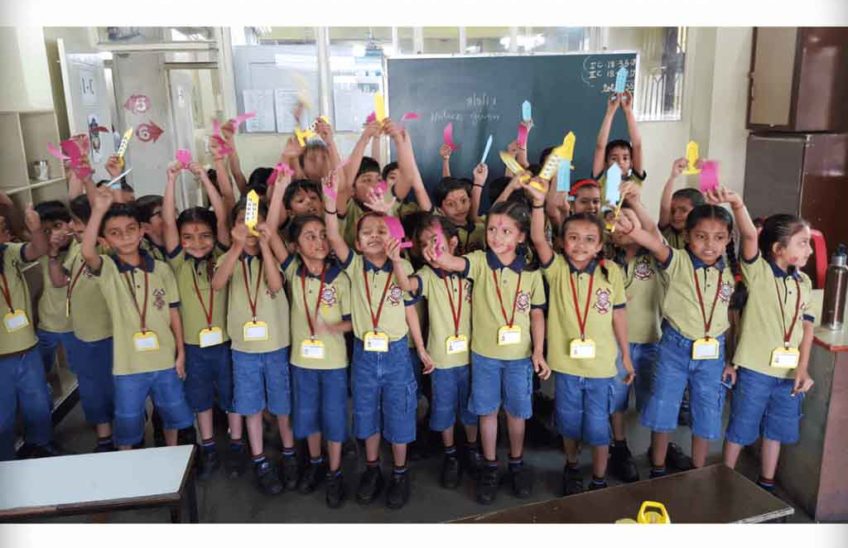
Primary Education paves the way for children’s future success. As a result, most countries have declared primary schooling a basic right for all citizens. Children’s character development begins at a young age, allowing them to adopt a learning style. Furthermore, there are various areas of basic education that you should be aware of in order to assist children in their entire development.
The main role of primary education are to instill in children the ability to think critically, achieve high levels of living, meet the difficulties of technological innovation, and enhance citizenship and fundamental values. Primary education providers must provide safe and positive environments where effective learning occurs. Primary education aims to provide an opportunity to have a steady team to interact with. Primary education also includes smaller categories and a lot of variety of academics. There is a need of primary education not only for an individual but also for the country as well. It is the foundation for further education.
In India, however, many parents are more concerned with finding a nearby school than with finding an excellent one. When picking a school, distance from home should not be the primary consideration. Some parents are unaware of the school’s history, vision, activities, and curriculum. Of course, they want the best for their children, but quality must always take precedence over other considerations.
Need & Importance of Primary Education
Primary schools in India offer a child the opportunity to acquire basic skills and knowledge that they need to be successful in life. It provides a child with an environment where they can explore, experiment, and learn at their own pace. It also helps children develop social skills like cooperation, communication, and empathy which are essential for children’s development. The importance of primary education in child overall development is numerous in terms of:
1. Moral Values
The basis for children to understand moral principles is laid in primary school. In addition to the standard teachings, the teachers emphasize the value of respecting people and their viewpoints. These factors are critical for overall growth, character development, and choosing the appropriate route.
2. Social Development
School is the first place where children learn to interact with various new people, including classmates and teachers. Before this, they spent most of their time with their parents, siblings, and relatives, but now they are exposed to a new environment at school, where they learn how to connect, play, and share with others. This is also where students make new friends, learn how to help one another, participate in group activities, sports activities, and so much more.
3. Reading and Communication Skills
Children learn to read for the first time in primary school. Reading is seen as one of the most beneficial habits for all people, even youngsters. It helps children see and imagine what they’re reading, which increases their memory and stimulation. Furthermore, they improve their conversational and communication skills.
4. Becoming Confident
When a child attends a good primary school, they are exposed to a positive environment in which the teachers are properly trained. They develop and learn in a supportive and encouraging environment, and a good school assists them in becoming more self-assured.
Role of Primary Education
Every kid’s first and most fundamental right is to receive primary education. It is not just the responsibility of the government but also of parents to ensure that all children have access to education. The major goal of primary education is to raise children’s consciousness, provide chances for self-development, and eliminate intergenerational poverty. It’s the first step toward establishing welfare and a community. Primary education is an absolute requirement for long-term growth.
The purpose of primary education is to ensure that children develop appropriately. This means that all children have the opportunity to develop their social, cognitive, cultural, emotional, and physical talents to their full potential. Attending a good primary school & pre-school in Surat, which can have a greater impact on children’s academic achievement than their family background or gender, is critical to receiving a quality primary education.
Benefits of Primary Education for child development
Primary education is important for child development because it provides a foundation for future learning. A strong start in primary school can help increase the likelihood that students will continue to do well in later stages of schooling, which can lead to better outcomes in adulthood. The benefits of primary education can be seen in children’s cognitive development, physical development, social-emotional development, and moral or ethical development.
The importance of primary education in the development of young children cannot be understated. It has a number of benefits for a child’s overall development such as:
1) Nurtures inquisitiveness
2) Improves child’s concentration
3) Boosts cognitive skills
4) Teaches diversity
5) Builds team spirit and resilience
Frequently Asked Questions
Q. How do teachers impact the development of children?
A. Teachers are one of the most important people in a child’s life. They are responsible for teaching children the skills they need to succeed and shaping their personality.
Q. What are the benefits of early childhood education?
A. Early childhood education can have a significant effect on the development of children. It is a vital period for the growth and development of the brain, cognitive skills, and social skills. Early childhood education has been shown to enhance school readiness, achievement in school and higher levels of employment.
Q. Why is it important for children to develop cognitive skills?
A. Cognitive skills are important for children because they help them to learn, think, and reason. These skills are crucial for their development as a person and in their future careers.

